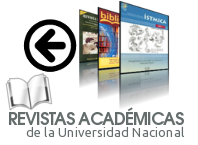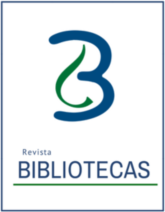Optical Character Recognition Applications in Libraries
Keywords:
History and Development of the Recognition of Optical Characters, Characteristics and functioning of the recognition of Optical Characters, Disadvantages of the Recognition of Optical Characters in the LibrariesAbstract
The sophisticated technology of optical characters has reached great popularity in libraries because his versatility allows to turn material printed or typed by Computational means without need to rig the information. His future and application in the libraries is very promising because it provides solutions to administrative problems and facilitates the technical process of the information.
References
Allen, Marie. Optical Character Recognition : Technology with New Relevance for Archival AutomationProjects / Marie Allen. --P. 88-96. --EnAmerican Archivist. --Vol. 30 (Winter 1987)
An Optical Character recognition research and demostration project. --Los Angeles, Calif. : LosAngeles County Public Library, 1977?
Clements, D. W, Conversion of the General Catalogue of Printed Books / D. W. Clements. --P. 46-49.--EnThe Electronic Library. --Vol. 6, no. 1 (Feb.1988)
Falk, Howard. Direct Entry without keyboarding / Howard Falk. --P. 1-2. --EnLibrary systems. --Vol.5, no. 1 (Jan. 1985)
Reed-Scott, Jutta. The Roleof Retrospective Conversion in AutomationPlanning / Jutta Reed-Scott. --P. 114-117. --EnLibrary Hi Tech. --Vol. 4, no. 2 (Summer 1986)
Schantz, Herbert F. The History of OCR / Herbert F. Schantz. --[S. l.] : Recognition TechnologiesUsers, 1982.Smith, John W. Optical Character Recognition : the Technology and its Application in Information Unitsand Libraries / John W. Smith and Zinat Merali. --West Yorshire : British Library, 1985.
Technology Assessment Report. --[S. l.] : National Archives and Records Service, 1984.
Downloads
Published
How to Cite
Issue
Section
License
Bibliotecas provide immediate open access to their content, based on the principle of facilitating research to the public free of charge and free of charge to promote the global exchange of knowledge.
The journal Bibliotecas is a publication hosted by a public higher education institution, which is supported by public resources. Since its inception, the magazine has offered all its contents free of charge without any restriction on the rights of: reading, downloading and printing in full text. Works published in libraries may be analyzed, quoted and reproduced in whole or in part, mentioning the original source.
The journal Bibliotecas is licensed under the Creative Commons Attribution - Non-Commercial - Share Equal, 4.0 International license; therefore, it is allowed to: share, copy and redistribute the material in any medium or format.

Este obra está bajo una licencia Creative Commons Atribución-NoComercial-CompartirIgual 4.0 Internacional.









